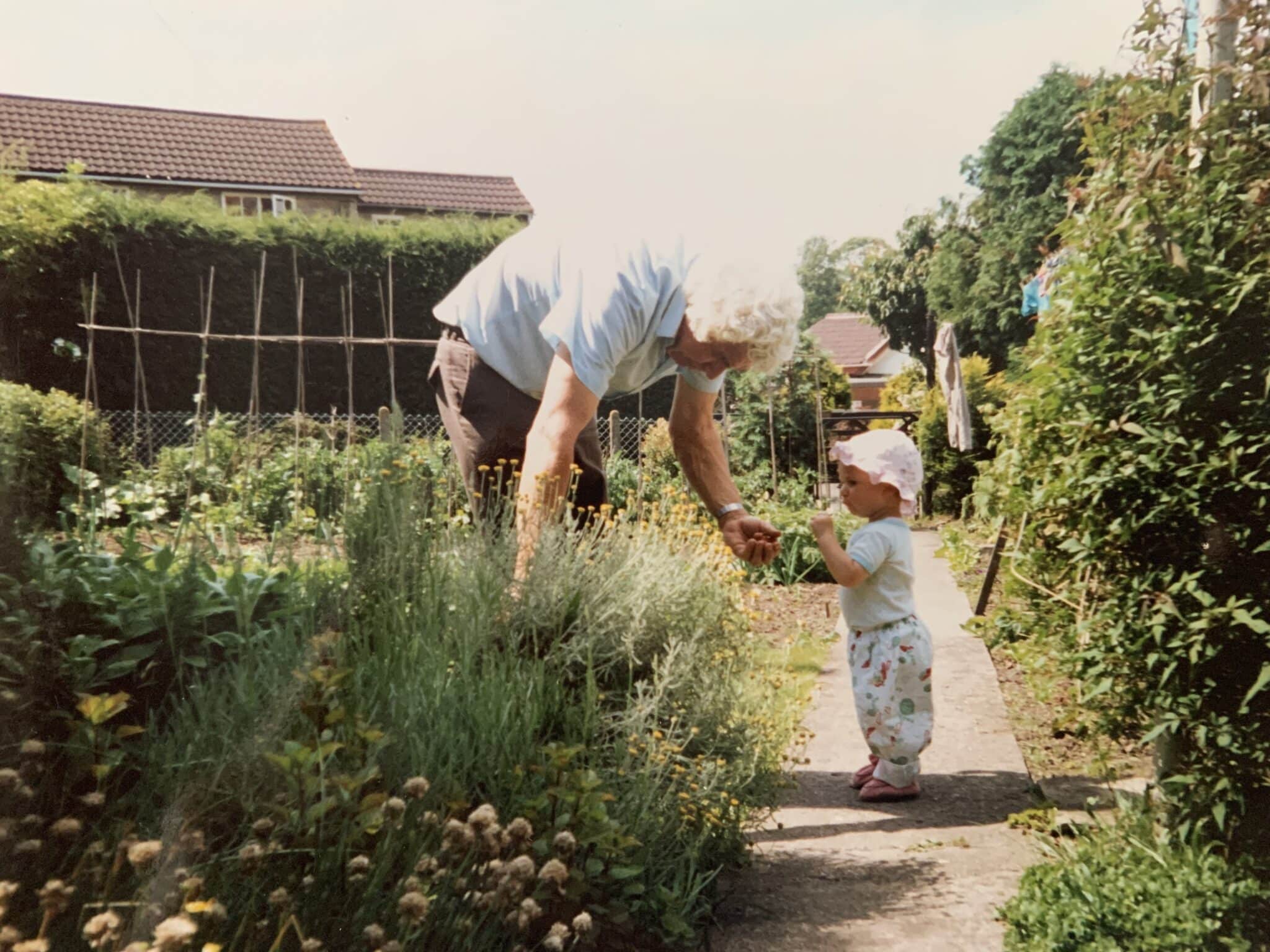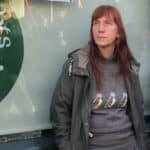When I was a child, my father and grandfather had a garden. My mother and grandmother had a kitchen.
Neither the garden nor kitchen were ever considered to be places of recreation. Everything had a functional use and there was no room for patios, ponds or garden ornaments. Many of the objects that now would be considered creative ‘up-cycling’, were just re-purposed out of necessity – very little got thrown away.
This scenario was typical of the farming and coal mining community that my village was then, and no doubt typical of similar villages around the country.
As a child, you didn’t really consider what you were in terms of class or wealth, but I was never in doubt that it was from the garden that we primarily got our food, and it was in the kitchen that basic ingredients were turned into meals. I didn’t consider my parents, grandparents or fellow villagers to be skilled in ‘self-sufficiency’, but they were, long before ‘self-sufficiency’ was invented.
Fast forward to the present day and it is sobering to witness the knowledge that has been lost in the intervening years. Sometimes I wonder at what point our self-reliant food system got broken. While tomato and turnip jokes abound on social media, our complacency in expectations of plastic wrapped, out-of-season salad from Spain is alarming to say the least.
Our family never grew tomatoes. We didn’t need to because we got them from Mr Bendix along the lane. Viktor Bendix was a German prisoner of war who married a local girl and stayed. His large cottage garden had several glasshouses from which most of the village got their tomatoes and cucumbers throughout the summer.
We swapped leeks for cabbage with Mrs Sampson and for cauliflowers with Mr Gill. The system was both simple and complex – a community orchestra without the need for a conductor because everyone knew their own part so well. We operated on both individual and community levels. Every family had their own preferences and techniques, but that individuality was closely woven with neighbourly collaboration.
When I think about it now, it feels like it was a longer time ago than it actually was. I have no doubt that what my family were doing to feed themselves in the 1960s, had changed little since the 1860s. Not only were we growing and eating fresh produce straight from the garden, we were also storing for most of our winter needs as well.
My father knew which vegetables could be overwintered outside and which needed to be brought into the sheds or house. We buried carrots in boxes of damp sand, to eat after the last of the late crop were gone and before the little first earlies put in an appearance.
My grandmother collected big glass sweet jars from the village shop, that might have a crack or a broken lid, (recycling before ‘recycling’ was invented), and filled them with runner beans layered with salt. These would last for months; the salt being sieved out and stored in a stone jar to be reused as each layer of beans was cooked in turn.
We foraged, before foraged food became the preserve of trendy restaurants. Pretty much any walk involved carrying a basket and often my grandfather would bring the little cart he made from scraps of wood and old pram wheels to take home ‘stick’ for the fire.
In peak seasons, we would take picnics and stay out all day, coming back at sunset with scratched arms and legs and purple fingers and mouths. Picking blackberries, whortleberries and the like was fun, but we were never under the impression it was an optional activity – you didn’t go home until you had picked enough.
As a child, I grew up on the tail end of age-old food production methods and systems. I realise now that we ate what suited our land and climate.
It may appear that I am presenting a rose-tinted picture of an idealised childhood, but it is only idealised by those who make it a lifestyle choice. There is little romance in maintaining a fully functioning vegetable garden after a shift down a coal mine as my grandfather and uncles did.
However, while coal mining needs to be consigned to history, our relationship with locally-grown and home-cooked food needs to be urgently revived.
Facing a seemingly precarious future, one that is defined by scarcity and collective disempowerment, the question begs to be asked: can we still summon the knowledge, skills and will to reclaim our food system as our own?
This piece was published in collaboration with the Sustainable Food Trust. To read the full piece, click here.














I grew up in the early 50’s. We were always told look after the pennies and the pounds look after themselves. My dad had an allotment as well as a garden. We were self sufficient most of the year when it came to fruit or vegetables. Mum used to bottle, make jam or puddings with blackberries foraged. Carrots were stored the same way as above. Bikes were swooped for either larger or smaller children in different families. Clothes and socks were always darned or mended.Sheets were when worn sewn top to tail. We didn’t consider us being sustainable.
I hope it cheers my fellow Terry Pratchett fan to know that I still darn holes in any garment that has one.
I loved holidays at my grandparents’ retirement home in Kent, where they were considerably self sufficient in veg. He had laid a square of nine big paving slabs near the plum tree. He had a huge pile of sand on them and used to ‘clamp’ beetroot in the sand, covered with an old tarp. By the summer holidays the old beetroot had been used up and we had a ‘beach at home’ to play in. If we found the odd missed beet so much the better.
IMHO we are too afraid children will hurt themselves, to start teaching them to use tools safely at a reasonably young age. I still have the screwdriver , pincers, [small] hammer and file [rasp] my dad bought for me when I was eight. I now own a lot more tools I have bought for myself. Being a girl was not an obstacle and so I have the skills to fix most things I wish to. Btw I’m now a proud Nannan. Dialect students will know that’s Sheffield for “Granny”
Great article. I too remember the days of growing veg out of necessity and of exchanging one type of veg for another. Or swapping veg for another necessity. Our wants were few and mostly unreachable but our necessities were normally catered for. But as for waste, we really didn’t have any. Food was fresh and containers were reused. And all our meals were eaten. Mental health issues didn’t exist and although you couldn’t say we were all happy we were content in those days. There wasn’t really any other alternative…..